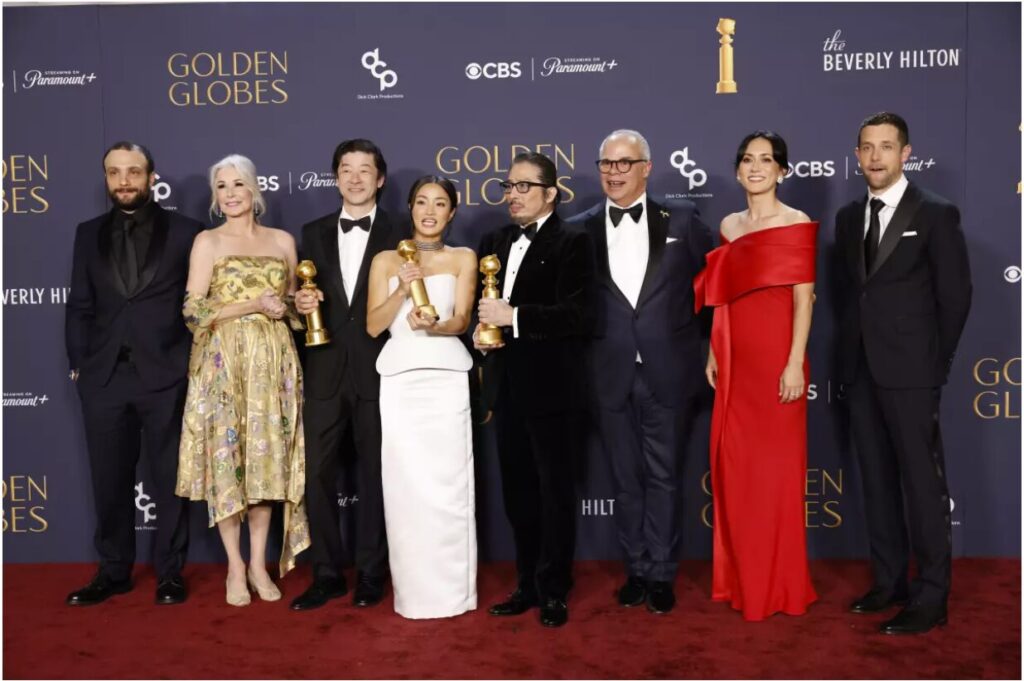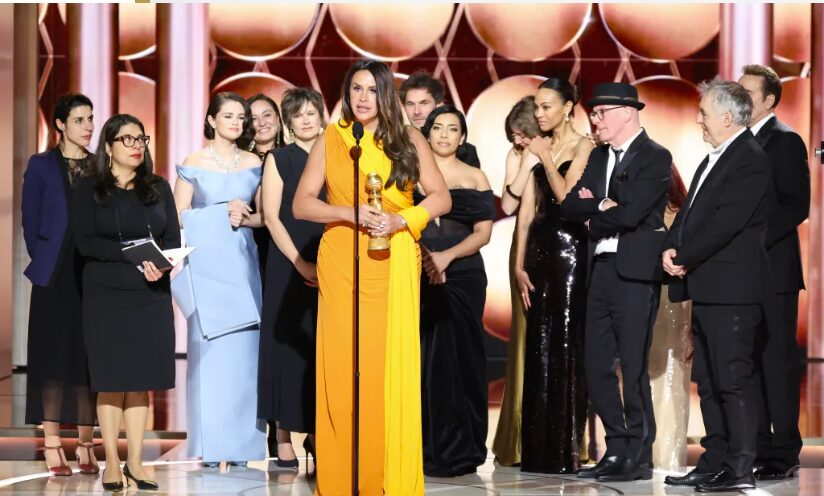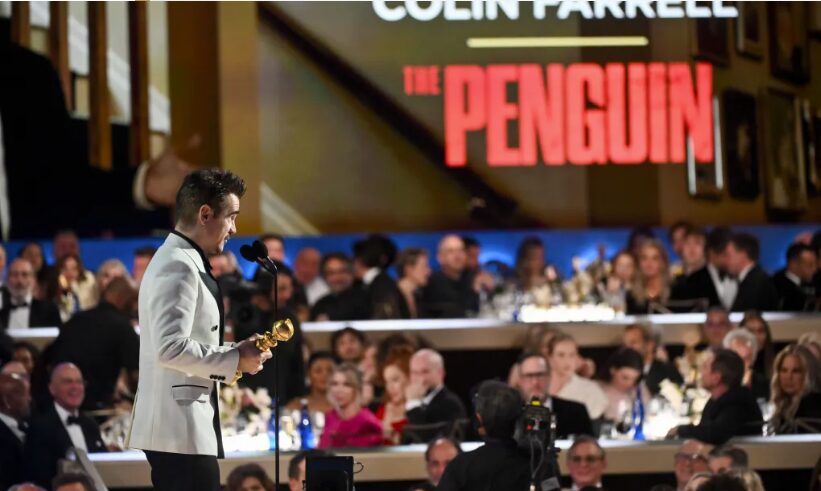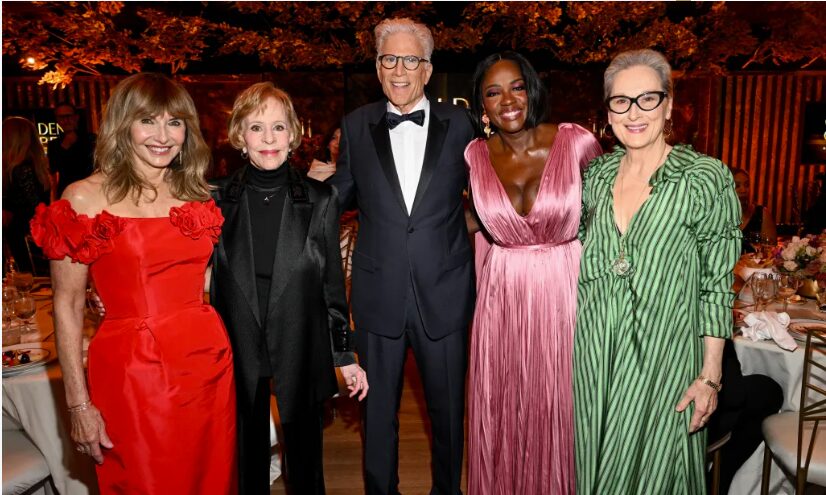
This past weekend, the Hollywood Foreign Press Association hosted its 82nd Golden Globes Awards, where the movie and television creative elite gather to celebrate the nominees and winners of some of television and film’s most talented artists. This year’s ceremony was hosted by the one and only Nikki Glaser, who comes off the heels of last year’s underwhelming viewer response to comedian host Jo Koy. Although in recent years, Tina Fey and Amy Poehler hosted together four times, while Sandra Oh split hosting duties with Andy Samberg in 2019, Glaser is the first woman to host the ceremony solo. This year, she was also a first-time Golden Globe Nominee for her stand-up special “Nikki Glaser: Someday You’ll Die.”, despite her losing to peer Ali Wong later in the evening.
Almost all of the major television category winners have felt familiar with last year’s award season whereas “Shōgun,” “Hacks,” and “Baby Reindeer” were the biggest hits. Meanwhile,
Netflix’s “Emilia Pérez,” which entered Sunday with a leading 10 nominations, might be about to make a strong push. It’s a story about a Mexican lawyer who is offered an unusual job to help a notorious cartel boss retire and transition into living as a woman, fulfilling a long-held desire. It’s almost as if a telenovela and musical had a baby, on Broadway. With ten nominations, the Spanish-language film was the second most nominated movie in Golden Globe history. It took home four in all, including Zoe Saldana’s first significant victory of the evening for “Best Supporting Actress.”
Twenty-six of Sunday’s nominees were on the ballot for the first time, such as Adam Brody, Pamela Anderson, Mikey Madison, Glen Powell, Jesse Plemons, and mega pop star Ariana Grande, who was nominated for her role as Glinda in “Wicked.” Grande was serving Oz in a glowing Givenchy 1966 archive gown, “It’s yellow because follow the yellow brick road,” the singer and “Wicked” star said while being interviewed on the Globes carpet. “And it’s one of Glinda’s favorite colors.”
“Wicked” which has now surpassed “Mamma Mia” as the highest-ever grossing Broadway musical adaptation, with over $634 million in ticket sales, was the third highest-grossing film of the year, with a revenue of more than $432 million in North America. And although falling short to “Inside Out 2” ($652 million) and “Deadpool & Wolverine” ($636 million), it has turned out to be one of the most award-nominated films of the year. The musical is the 11th Broadway-to-film adaptation to take home a Golden Globe — joining most recently a best motion picture win for “Les Misérables” in 2013.

“Flow”—an 85-minute, dialogue-free story about a cat in danger—won the best-animated feature category after competing against big-budget studio blockbusters like “Inside Out 2” (Disney) and “The Wild Robot” (Universal). The movie tells the story of a cat that ends up aboard a boat with several different sorts of animals when a flood destroys her home. “Flow” was distributed in the United States by Janus Films, a relatively modest firm that usually deals with minor art-house releases like “Drive My Car” and “EO.”
One of the most notable takeaways from this year’s Golden Globes was the lack of diversity in winners. Zoe Saldana may have been the first win of the night, but she was also the only Black winner of the entire televised ceremony, with some of the biggest upsets including Quinta Brunson for Abbott Elementary, Ayo Edebiri for The Bear, and Denzel Washington’s stellar performance in Gladiator.
Aside from Zoe Saldana, the Land of Oz, and the rock on Zendaya’s hand, the rest of the night belonged to Demi Moore, who snagged her first major industry award Sunday night at the Golden Globes. It was her third Golden Globe nomination but her very first win. Outside of People’s Choice Awards honors, she hadn’t otherwise won any prestigious industry awards despite her epic career, including productions such as “St. Elmo’s Fire” and “Ghost”, which prompted Whoopi Goldberg to win her historic Academy Award for “Best Supporting Actress”, becoming the second Black actress to win the award following Hattie McDaniel in 1940. Moore gave an emotional speech for her win for “The Substance,” reflecting on her 40-plus years in the industry. She encouraged people to know their worth. “This is the first time I’ve ever won anything as an actor. I’m just so humbled and so grateful, thirty years ago I had a producer tell me that I was a popcorn actress, and at that time, I made that mean that this wasn’t something I was allowed to have. That I could do successful movies but I couldn’t be acknowledged. I bought in, and I believed that. That corroded me over time to the point where I thought a few years ago that maybe this was it, maybe that this was complete, that I’ve done what I’m supposed to do.” Then, ‘The Substance’ came along, which she called a “magical, bold, courageous, out of the box, absolutely bonkers script. In those moments when we don’t think we’re smart enough or pretty enough, skinny enough, successful enough, or basically just not enough, I had a woman say to me, just know you will never be enough, but you can know the value of your worth if you just put down a measuring stick. And so today, I celebrate this as a marker of my wholeness and of the love that is driving me, and for the gift of doing something I love and being reminded that I do belong. Thank you so much.”
This years’ Cecil B. DeMille Award, which recognizes “outstanding contributions to the world of entertainment”, was given to renowned actress Viola Davis. Davis has won a Golden Globe in 2017 and has been nominated seven times in her career. Aside from her Globe for her role in “Fences” in 2017, Davis is one of the few individuals who have received the Emmy, Grammy, Oscar, and Tony—collectively known as the “big four.” Or “EGOT”. Denzel Washington (fellow 2025 Golden Globe Nominee), the director and co-star of Davis’s “Fences,” Sophia Loren, and Walt Disney are among the past DeMille Award winners.

When the Golden Globes organization decided to “instead devote an entire evening to the recipients, with lengthy clips, introductory remarks, and acceptance speeches that allowed time to give the artists their due, rather than squeeze them into a 45-second slot on a longer awards show,” they faced backlash for not having the award presentation televised, but they never wavered.
Since 1952, when the honor’s namesake was the first recipient, the Golden Globes have presented the Cecil B. DeMille Award. However, due to time constraints resulting from the introduction of two new categories—best performance by a stand-up comedian and cinematic and box office excellence—the two honorary awards were postponed for the 2024 Golden Globes, and rearranged for 2025.
As a point of comparison, the Oscars also bestow some prizes at a different Governors Awards ceremony before the broadcast, but that still doesn’t eliminate the room for criticism.
Ted Danson, on the other hand, was given the Carol Burnett Award, which the Globes instituted in 2019 to honor the greatest comedians in television. Danson has won three Globes, including two for his iconic portrayal of pitcher-turned-bartender Sam Malone on the enduring sitcom “Cheers” from the 1980s. The Carol Burnett Award and the Cecil B. DeMille Award are known to be genre-specific lifetime achievement awards handed out by the Hollywood Foreign Press Association during the Golden Globes celebration.

The Golden Globes have always been like the love child of the Emmys and the Oscars. The bridge between television and film, that recognizes creatives and professionals throughout the on and off-screen Hollywood community. It serves as a reminder that major award ceremonies like the Globes, Emmys, and Oscars can sometimes overlap, creating an effect that is clearly wonderful for the winners but may seem redundant to viewers at home. In a world inundated with binge streaming, oftentimes we can spend more quality time with our favorite fictional (and non-fictional) characters than we do with our coworkers, our families, and sometimes ourselves. So, even in a pandemic, it doesn’t deter audiences from tuning in to live vicariously through red-carpet moments and viral acceptance speeches. Although this year’s Golden Globes was giving very “Oscar’s So White”, it will be interesting to see what trend this sets, if any, for the remainder of the 2025 industry award season.








